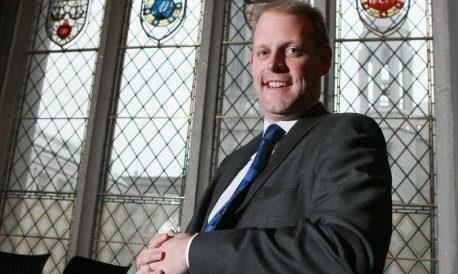School summer holidays could be shortened and traditional teaching patters turned upside down under radical suggestions for reforming education in the wake of Covid.
Coronavirus has presented the opportunity for top to bottom change within Scottish schools, Aberdeen University lecturer Neil McLennan argues.
He believes consideration should be given as to whether the six-week summer holiday, which came into force so that children could help out on farms, is still beneficial to pupils.
And he is asking whether the 9am start to the school day is what’s best for helping them to learn.
It is well documented that students from more well off backgrounds achieve better grades on average than those from poorer families, and Mr McLennan believes shaking things up in response to the pandemic could help close the attainment gap.
Mr McLennan, a senior lecturer and part of the Scottish Futures Forum government think tank, is intent on changing education from its current “factory” model, and believes the time for change is now.
The academic, who is also director of leadership programmes in the School of Education, said: “During the pandemic so many changes to education have already occurred.
“Children have been starting their work later but also finishing into the evening and many parents have noted a rise in productivity.”
Mr McLennan pointed out that the normal start time of 9am for lessons is in place purely to suit the needs of parents as they rush to work.
He added: “Even shifting the start time of the day has a significant change to engagement and outcomes, very minor nudges to the school day and utilising technology have flipped learning environments online.”
The strategy proposed is a way of having students complete readings at home and work on live problem-solving activities during class time.
Mr McLennan reckons the move would allow teachers to support students and provide more one-on-one assistance during scheduled class hours.
He added: “With the added time teachers will have because of small changes they can dedicate time to those students who need it most, which under the current system wouldn’t happen.
“Young people are grouped and processed on a kind of factory conveyor belt within restrictive timetables, there are more liberal ways to look at this.”
Other suggestions included re-allocating parts of the six week summer holiday to other times in the year.
Long breaks are thought to be detrimental to those with poorer grades, as for a prolonged period they are unable to tap into educational resources.
Mr McLennan said: “Changing summer holidays this year could challenge the school year pattern based on historic agricultural needs.
“Why do we still have long summer holidays which are pedagogically poor for the most needy kids (long holidays are fine for those going to holiday destinations and summer sports camps but not for those whose education can regress).
“Do we need ‘tattie holidays’ when few kids howk tatties these days?
“The issue now is policy makers and politicians moving these evidence based ideas from the think tanks and moving them into practical action.”










